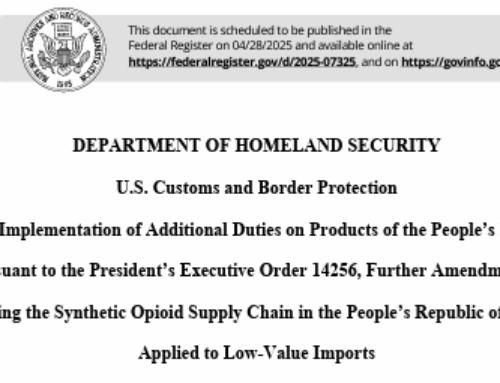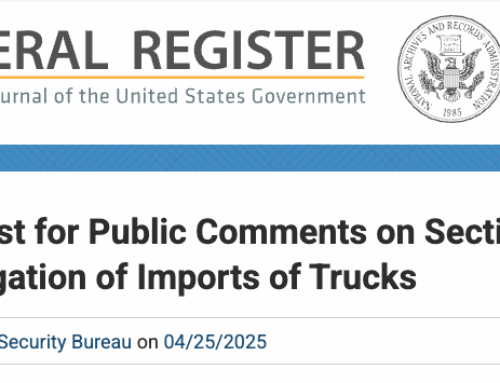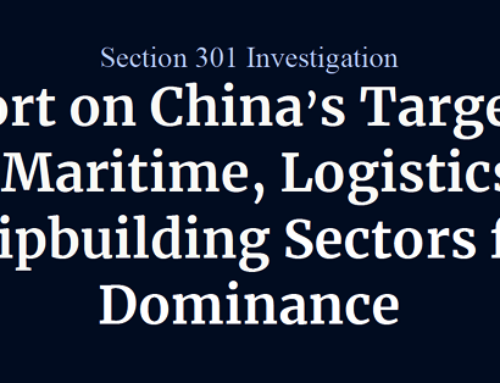CORRECTION: Customs and Border Protection (CBP) officials provided clarification during an October 27 industry call stating that the upcoming postal code requirement for Chinese manufacturer IDs would not be required for existing manufacturer IDs, only when a manufacturer ID is created or updated. The postal code will also be required as a data element on the cargo release for entries with China-origin or a Chinese manufacturer ID, regardless of whether the manufacturer ID is new or existing. The Agency recently delayed their deployment date for the Uyghur Forced Labor Prevention Act and is changing its ACE development schedule so that the “region alert” will be “TBD” instead of December 15 to reflect this delay.
Implementation is now delayed for Customs and Border Protection’s (CBP) new mandatory data element requiring the postal code for entries where the goods originate in China in an effort to identify and enforce the Uyghur Forced Labor Protection Act (UFLPA).
Within CBP’s Automated Commercial Environment (ACE), the new requirement will be called “UFLPA Region Alert” under which the “postal code” will become a “required field” when “Country of Origin is China for Entry and for Manufacturer Identification Code (MID) creation.”
The UFLPA Region Alert will add three new validations that will be performed when Country of Origin is China for Entry and for Manufacturer Identification Code (MID) creation for both Trade and CBP users:
- Postal code will be a required field.
- Users will receive an error message if the postal code provided is not a valid Chinese postal code.
- Users will receive a warning message when a Uyghur region postal code has been provided.
Includes EDI Impacts.
DEPLOYMENT DATE: TBD
For more information, visit CBP’s Notional Development & Deployment Schedule for Automated Commercial Environment (ACE).
In a September interview with the Wall Street Journal, Robert Silvers, a U.S. Department of Homeland Security undersecretary who chairs the interagency Forced Labor Enforcement Task Force, stated that in fiscal year 2022, CBP targeted 1,600 entries worth about $486 million under the UFLPA. A total of 3,600 entries valued at about $816 million were targeted under suspicion that they were made with forced labor. In September, CBP had yet to release a shipment “detained” under UFLPA since the law took effect in June.
For detained shipments where the importer can successfully prove their goods aren’t subject to UFLPA because they aren’t connected to the Xinjiang region of China, CBP has released this cargo under “applicability.” CBP has yet to receive an “admissibility package” that overcomes UFLPA’s rebuttable presumption and proves detained goods subject are not made with forced labor.
Stay up-to-date on freight news with Green’s Weekly Freight Market Update by following us on Facebook, Twitter, and LinkedIn. For continuous updates, make sure to check out our website at greenworldwide.com.






